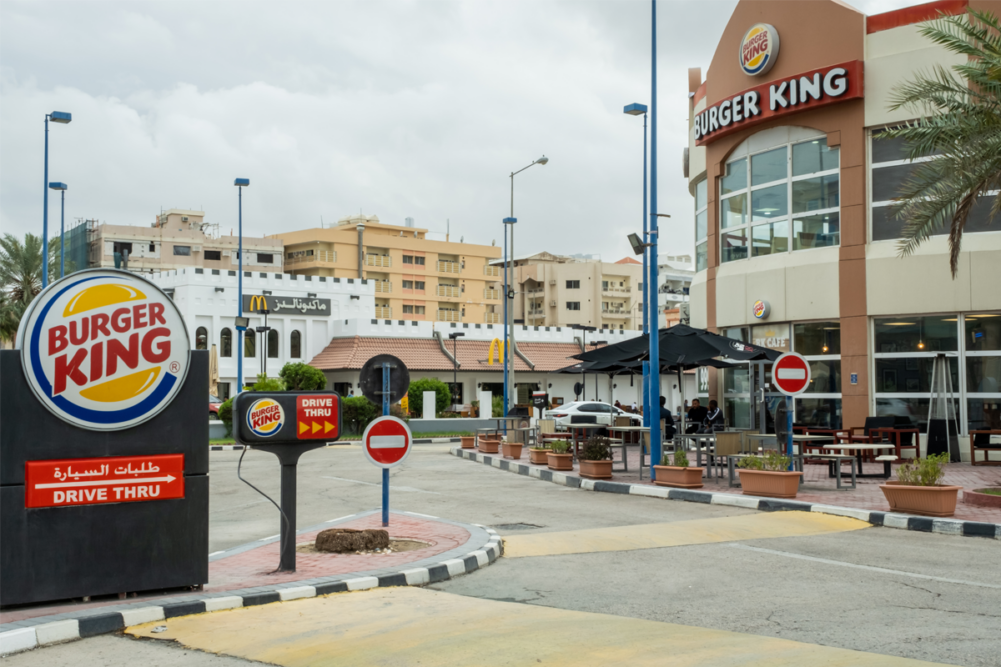TORONTO — Several years ago executives with Restaurant Brands International, Inc. (RBI) shared their goal of growing to 40,000 restaurants. And despite a global pandemic that put a damper on the foodservice industry the past two years, the goal remains in place.
Speaking to analysts during a March 9 presentation at the virtual UBS Global Consumer and Retail Conference, David C. Shear, president of international operations at RBI, said the company feels good about its growth prospects, led by Burger King, which is “still just beginning to scratch the surface.”
“We have big gaps in emerging markets like Brazil, India, Indonesia, where we can clearly continue to grow for a long time,” he said. “But also, what's exciting about Burger King is that even in markets that are usually considered mature for other businesses, we have a big growth runway. So places like Japan, France, Spain, these are three of our biggest growing markets around the world and will continue to be into the foreseeable future.”
Tim Hortons also is becoming a more meaningful unit driver for RBI, Mr. Shear said. He said China has “a ton of potential” for Tim Hortons, but other growth opportunities exist in the Middle East, Mexico and the United Kingdom.
Mr. Shear said RBI expects Popeyes to become a “very meaningful growth driver” in the near term.
“I think that in the last 12 months, we’ve signed deals in a lot of major markets, including France, including Korea, India, Saudi Arabia, the UK, Romania, and I might be leaving a couple off,” he said. “But the total commitments are — of just those deals there are more than 1,700 restaurants in the next 10 years.”
Asked by an analyst what it takes to go from the announcement of development agreements to actually opening those units and ramping them up, Mr. Shear said it’s not a simple process.
“I think growing brands into really scaled international businesses that are highly profitable … it doesn’t happen overnight,” he said.
He identified four major components of having successful new country entries.
First, it’s important to invest time and resources to get a brand ready for internationalization.
“When we acquired Popeyes, we had a presence in 25 countries,” he explained. “But if you walked into a kitchen in South Africa, and you walked into another kitchen in, let's say, Saudi Arabia, you would see absolutely different product specifications, different types of equipment, different layouts, different restaurant designs, different everything.
“So I think that it’s really important when we get a new brand that we spend a lot of time to get the brand ready to be internationalized. So with Popeyes, for example, we had to overhaul the visual identity of the brand. We created a new logo and new visual identity system, new fonts, new packaging, new uniforms. We had to come up with new restaurant designs that would work for the international business. And we had to make sure the product specifications were much tighter. These are just a few of the work streams, but product specification is one thing, being able to produce something consistently in the US. It's something very different to be able to consistently provide that experience in 100 countries around the world.”
A second component is finding the right partner, Mr. Shear said. To that end, he said RBI exercises patience, looking for partners that are well capitalized and that have big ambitions.
The third component is tailoring the business for the new market. Mr. Shear again referred to Popeyes as an example of how RBI carries out this component.
“With Popeyes, we try to bring the same Louisiana experience to any new market that we go into, but it's not the same product,” he said. “When you source local chicken, the attributes of the chicken are different from one country to the other. The preferences of each market around the spiciness levels, the saltiness levels, the greasiness levels, those all change from place to place. So to make sure that we’re delivering our product in a way that’s going to be really preferred in each of the markets, it takes time and it takes research and a bunch of consumer insights and it takes a lot of time on the ground from our culinary team from Miami.
“We've got a team of outstanding chefs based in Miami now based in some international as well, who spend a lot of time on the ground in any of the markets so we want to make sure the product is absolutely perfect. And then we can say that we're really bringing the experience of Louisiana to the world. And that all takes time.”
Finally, once in a market RBI seeks to understand what’s working, what’s not working, how consumers are perceiving the product and whether any alterations need to be made.




